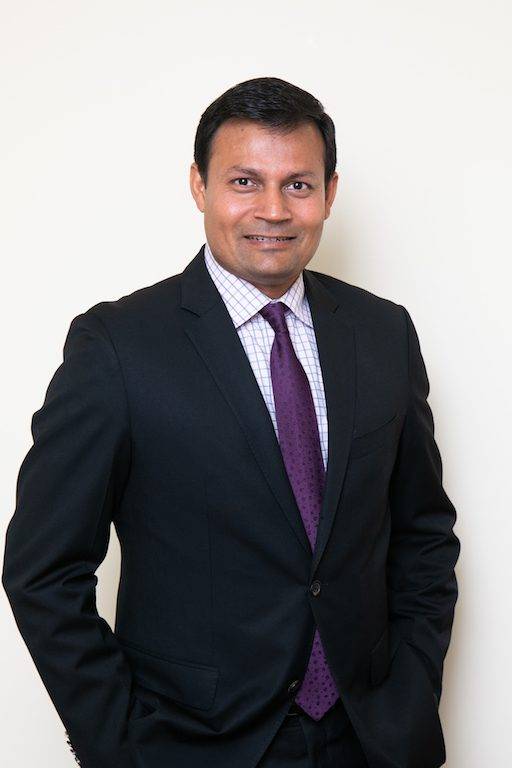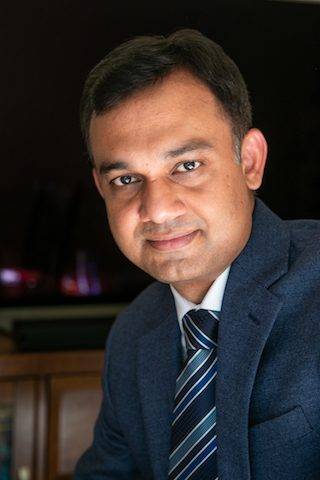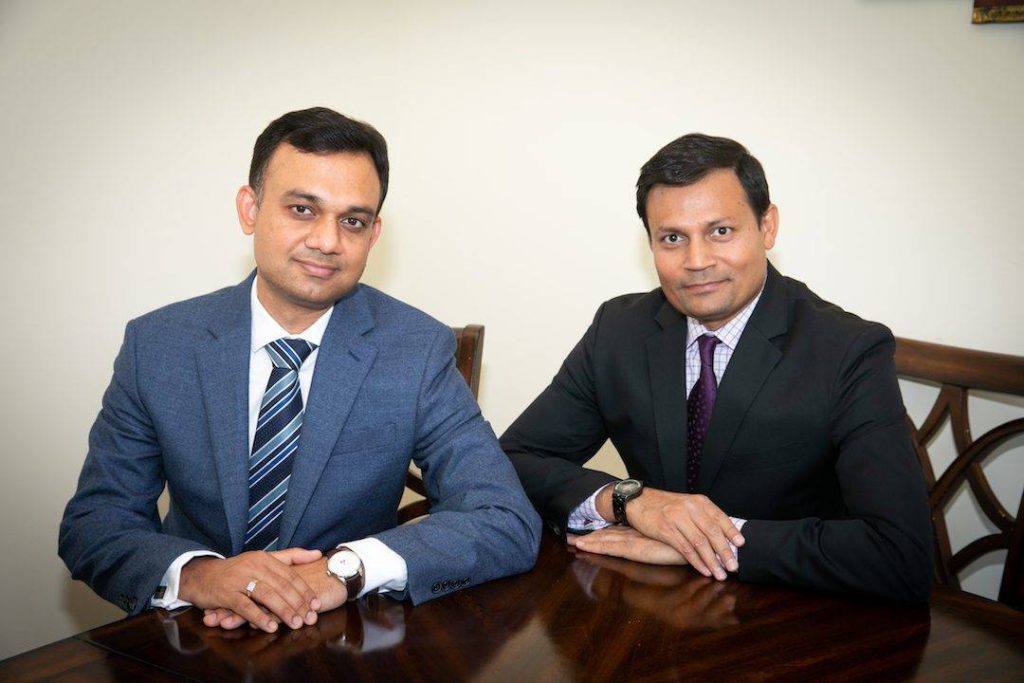With Over 10,000 Downloads- SeekMed is Adding Speed To The Growing African Telemedicine Sector

African telemedicine market has experienced substantial growth in recent years. In 2015, the market was valued at USD 18 Bn. It is expected to grow into a USD 41 Bn industry by 2021. Telemedicine – the provision of health care over a distance using information and communication technology (ICT) – is a great promise for Africa, especially for individuals living in geographically challenged areas. But there is hope and solution with SeekMed app: the first telemedicine provider in Africa.
SeekMed, a platform for affordable telemedicine, helps connect patients with quality international healthcare professionals via a user-friendly mobile application. The innovation was chanced upon to provide an easy-to-use service for people to get in touch with the best doctors for professional and ethical medical advice. In a bid to liberate significant challenges associated with healthcare, SeekMed sought to establish a link between India’s award-winning, most sought-after specialists with the global patient community. Developing countries have small budgets and even smaller health budgets. The governments of 20 African countries budget less than USD 20 per capita per annum for health. This amount includes the costs of ICT for health purposes.
Searching for a qualified, reliable health consultant online is not as easy as it sounds. Save the fact that internet searches can be misleading; most of us usually have no prior knowledge to make the best choices. With internet penetration increasing all over the world, still, connecting with professional doctors is hamstrung by too many a challenge. But all that can now be a thing of the past. SeekMed allows you to ask complex medical questions, seek advice on surgery or treatment regimes and take care of your own medical decisions.
“Our intent is not just to connect patients with the right doctors, but to empower them to make medical decisions with confidence. We help patients avoid sidestep overspending alongside the hassles that come with ill-informed decision-making,” Alok Awasthi, Co-Founder SeekMed said.
The Inspiration
Years ago, Awasthi’s son was diagnosed with craniosynostosis – a medical condition that hardens a child’s skull after birth. To save the boy’s life, Awasthi and his wife were ready to do just about anything to correct the situation. A complicated surgical procedure was undertaken but without the second opinion of an experienced doctor. The rather unpleasant situation gave birth to the idea of creating a platform where trust can be established between great doctors and needy patients. The motivation was to give people the avenue to take more informed decisions and enable them to stay healthy.

Awasthi founded SeekMed, banking on his 20 years of professional experience delivering digital transformation capabilities to several industry leaders. Before founding the telemedical firm, he worked in the Life Sciences industry as an IT Business Partner. From identifying strategic initiatives to working roadmaps, Alok was always building partnerships to deliver value to patients. Based in the United States, has a degree in Mechanical Engineering and an MBA in Strategy, Corporate Finance and Global Business from the New York State University.
Getting the firm off the ground perhaps wouldn’t have been possible without efforts from Sharad Dubey, SeekMed’s co-founder. He brings to the startup over 15 years of progressive experience assisting large companies in making financial decisions. Recently, he worked as a Finance Director in a large pharmaceutical company where he led the Company’s complex M&A transactions workstream. Also based in the United States, Dubey is a Chartered Accountant and Certified Public Accountant.

Telemedicine can prove to be a lifeline, especially in complex medical conditions such as cardio, kidney, liver or neurological disorders. In such cases, the need for prompt and professional medical intervention cannot be overemphasized. However, the gap between patients and the best medical care is rather too wide. Healthcare via a medium such as video consultations narrows the chasm by bringing efficiencies in delivering healthcare services. Even though Africa is still in the embracing stages of this service, the health problem plaguing the continent could very much use telemedical intervention.
Tackling Barriers
Most African countries have poor infrastructure, no thanks to the rate of poverty and political unrest. In Sub-Saharan Africa, only 4.5 percent of bandwidth is both limited and expensive. But Africa’s infrastructural underdevelopment plays a huge role in undermining the immediate impact of telemedicine. On the international front, telemedicine is used to keep the ageing population out of hospitals and emergency rooms. Such improvement is crucial for the continent, but near perfection is yet a thing of the future.
In most parts of Africa, there is an unavailability of hospitals and clinics. In Asia, the same is the story. Even though the challenge has been bested to a degree, patients are hardly able to access proper healthcare. Factor in the cost of travel and the lack of improved infrastructure, a significant patient population have almost no means of accessing quality treatment and advice. Judging from the fact that with only 4.39 health and wellbeing rating in the region, it’s easy to understand that telemedicine is needed. In Africa, 31 countries have less than 10 doctors per 100,000 people. Perspectively, Germany has 240 doctors for every 100,000 people, Italy 370 and Norway 380. Due to the shortage of doctors in Africa, telemedicine is nearly a no-brainer.

SeekMed overcomes physical infrastructure problem by offering its services online. “Thankfully, mobile and internet infrastructure combined with the use of smartphones in developing countries and especially in Africa have grown considerably in recent years thus giving us hope to bypass the hurdle in delivering secure and efficient medical services to patient’s doorsteps. Our core focus at this time is to develop our reputation as a quality healthcare platform people can trust.”
Nevertheless, the business faces a handful of challenges. The most prevalent is user acceptance by healthcare workers. That’s the second biggest challenge after the availability of appropriate technology to the successful implementation of telemedicine. There is a widespread misconstruance among the patient community that every medical consultation requires a physical examination by the doctor. Contrary to the misconception, most of them, in fact, do not. SeekMed is concerned about educating patients on the ease and benefits of accessing medical consultations remotely. After overcoming the hassles of securing and attending an in-person consultation, patients will be able to realize the value of telemedicine.
Africa To The World
The SeekMed app can be used in technically any country that has good internet. In Africa, however, SeekMed targets the Anglophone nations where smartphone usage is on the increase and broadband is substantial. The platform’s African journey started from Nigeria, but it looks to expand to Kenya, Ghana, Namibia and other countries where patients find it overbearing to access quality healthcare providers. India is considered as the best-known go-to for medical tourists from the continent due to the advanced health infrastructure and availability of the best medical hands. SeekMed wants to play a major role in helping these tourists make informed decisions – essentially the ones that don’t involve travelling over long distances.
In a continuous effort to render credible services to the patient community, SeekMed strives always to find ways to serve those challenged with limited healthcare means. Under the auspices of its business model and global reach, the startup is confident of achieving its objectives without compromising on delivering values to all spheres of the patient community. In the first few months of launch, the telemedical platform received up to 400 consultation requests from about 28 countries around the world. “Patients who have used our platform have consistently given us five-star ratings and reviews. This is encouraging for us, and we’re feeling more committed and confident of continuously delivering value to our patients.” Dubey said.
Awasthi added that “We believe that our platform would not only be a reliable medium for people seeking quality and reliable healthcare services but will also help people save substantial cost, time and efforts. Further, our ability to quickly scale-up will provide with further confidence that we will be a go-to choice to our patient community when it comes to quality healthcare services.”